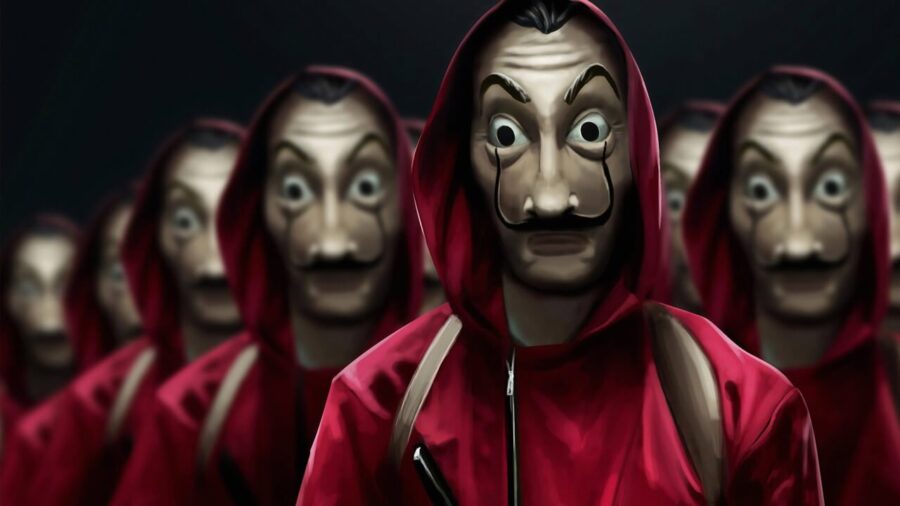This feature on Money Heist is authored by Sumedha Pal. She is a journalist at Newsclick.in, and writes about politics, covers protests and the environment.
***
Those of us living for the latest Netflix binge are no strangers to the global phenomenon, the Spanish show, Money Heist or a La Casa de Papel. The show is trending at number one in India as well.
La Casa de Papel is the story of the world’s biggest heist, orchestrated by a crime genius to the smallest detail: to break into Spain’s Royal Mint to print their own money, about €2.4bn.
Initially, the idea of the show seemed utterly ridiculous as I dismissed it as a “mindless-chase” show only to find myself hooked to the show in memories of my former partner, who once wrote me a love letter with references.
The first season of the thriller saw its gang – all code-named after major cities, wearing revolutionary-red overalls and Salvador Dalí masks – break into the Royal Mint of Spain, taking 67 people hostage and literally printing money: 2.4bn euros, to be exact. In the part that follows the chase continues as the gang goes on to rob the National Bank of Spain to free one of its members from detention. The plot has loose ends, over-exaggerated sequences, over the top romances, but mostly a lot that does not add up. But the success of Money Heist is not in its ability to thrill audiences but in its attempt to spell out the failures of capitalism.
From the group donning Dali masks (which symbolise his rejection of modern capitalist society) to the show narrating the robberies as an all-out protest against the system, Money Heist carefully strikes a chord with its audiences to expose a failed capitalist state—driven by profit, pushing the common people to put their lives, their health and families on the line just for survival.
The novel coronavirus has exposed faultlines in the prioritisation of the state. (We have seen migrant workers stranded without food and the homeless being finally given space to sleep in the hotels of Las Vegas). Money Heist with the likes of the movies such as the Oscar award-winning Parasite is entertainment that resonates and is one of resistance.
Also read, What To Stream: Bong Joon-ho’s ‘Parasite’ Gets Floods And Disparity Right
The plot shows the mastermind of the operation, send a message to people; he gets everyone from the gang to sing the popular Italian song—Bella Ciao—which was sung by the partisans fighting fascism during World War II. The professor talks about his father—who was forced to rob banks as he could not afford treatment for his sick son. In another sequence, the professor explains, “In 2011, the European Central Bank made €171bn out of nowhere. Just like we’re doing. Only bigger,” El Profesor tells the police to justify his actions. “Do you know where all that money went? To the banks. Directly from the factory to the pockets of the rich. Did anyone call the European Central Bank a thief? No. ‘Liquidity injections,’ they called it. I’m making a liquidity injection, but not for the banks. I’m making it here, in the real economy.”
The series finds its context in Spain’s economic and social climate since 2008. At the heart of the show is the central understanding of alienation, which enablies us to connect with the characters. In one of the sequences, even after being taken prisoner, the Royal Mint’s CEO threatens his fellow hostage, an employee, by promising to fire him as soon as the heist ends. “I know you have two grown-up daughters who have been jobless for seven years.”
The show is not so much about the fight for money but what the money represents. Leading the audiences on to cheer for the robbers and by looking at them as revolutionaries against the unjust state, Money Heist created by Madrid-based director Alex Pina places hope in the spirit of revolution and protests even as governments across the globe continue to discredit them.
As Alex Pina said, “First and foremost, the series is meant to entertain, but an idea runs underneath… Scepticism towards governments, central banks, the system … This notion would not sink in unless it were formulated within an entertaining narrative.”



